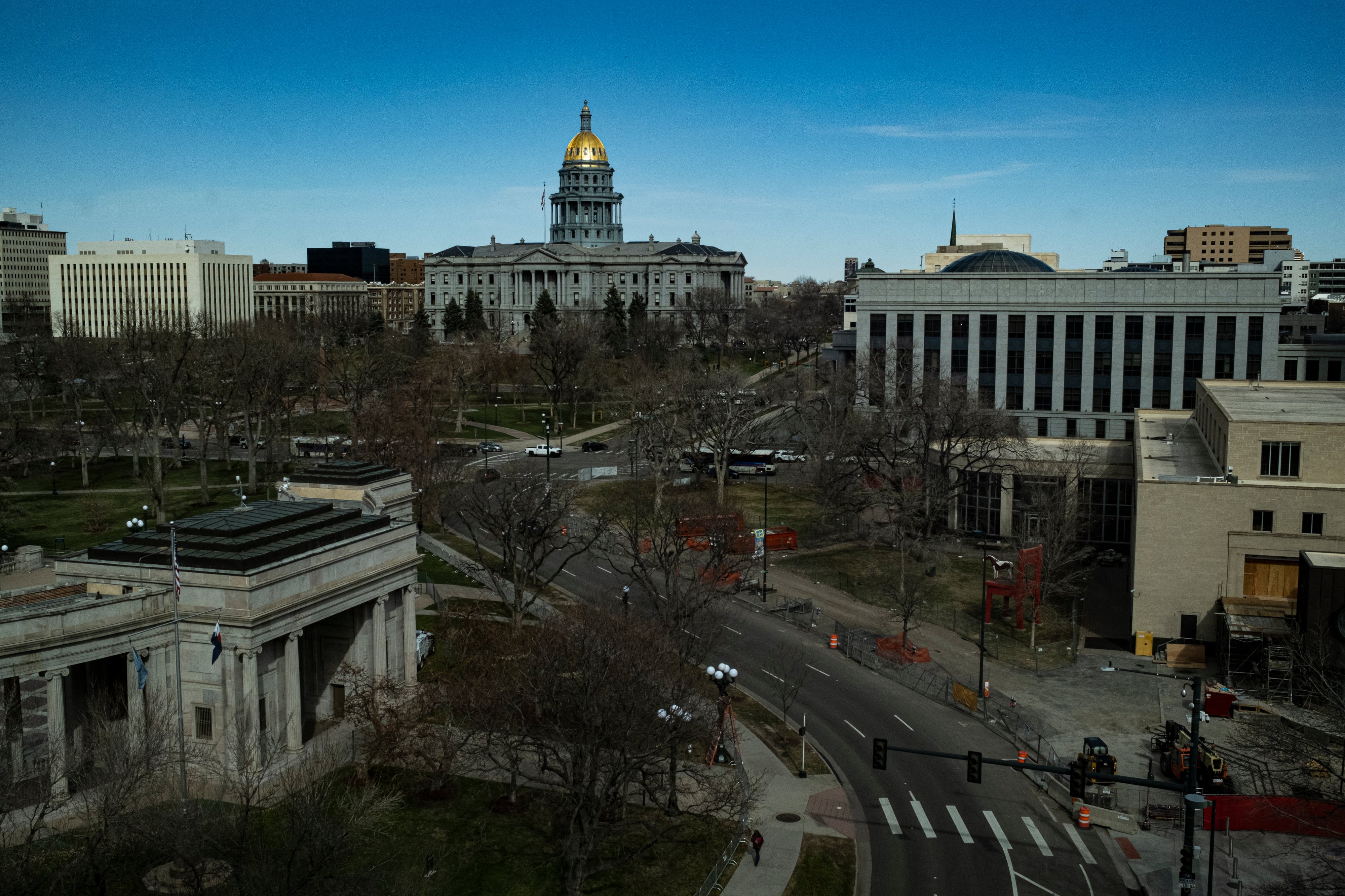Sign up for our free monthly newsletter Beyond High School to get the latest news about college and career paths for Colorado’s high school grads.
Next year’s Colorado budget could mark the first time since the Great Recession that the state meets its constitutional obligations to fund K-12 schools.
Gov. Jared Polis released his proposed budget on Wednesday. It includes an additional $564.1 million for K-12 education and brings an end to what has been known as the budget stabilization factor, a mechanism that allows lawmakers to divert K-12 funding to other priorities.
Polis said the money would allow school districts to lower class size and pay teachers more. His budget also includes $42.7 million more for higher education institutions, financial aid, and student support.
Amendment 23 requires that K-12 funding increase every year by the rate of population growth plus inflation. But since 2009, through the budget stabilization factor, lawmakers have diverted over $10 billion that should go to K-12 schools. When they set this year’s budget, they promised to end the practice altogether next year.
Polis’ proposed budget sticks with that promise, though he warned that nothing is set in stone.
“It’s not a done deal in that sense because previous legislators can’t force the funding,” Polis said.
Polis is required to craft a budget proposal every year by Nov. 1. But the budget lawmakers adopt in March or April is actually written by the six legislators on the Joint Budget Committee.
Polis’ budget would bring total state spending to $43.5 billion and calls for new investments in housing, health care, renewable energy, and public safety in addition to education.
Polis’ 2024-25 fiscal year budget would increase K-12 funding to about $9.67 billion, or about 6% more than this year. The budget earmarks $705 more per student in funding, or an about 6.6% increase. Statewide, that would bring per pupil spending to $11,319.
The budget doesn’t factor in the effects of Proposition HH. If voters approve the complex property tax relief measure, school districts would have less money from local property taxes and the state would have to increase its own schools funding to make up the difference. However, there should be enough money in the state education fund, a sort of savings account, to cover that obligation.
If Proposition HH doesn’t pass, lawmakers could be debating property taxes again, with uncertain impacts.
The governor also wants $39.7 million more for college and university budgets and financial aid for students. Another $3 million would be used to support the college attendance of youth who have experienced homelessness.
Colleges and universities would also be allowed to increase tuition 2% for in-state and 6% for out-of-state students.
In previous years, college and university leaders have banded together to request more funding. Last year, higher education leaders said the governor’s budget didn’t include enough to cover inflationary increases, increased student services, and increased wages.
“Everybody always wants more money and institutions of higher education are no exception, but we’re confident that we can meet these goals,” Polis said.
Other K-12 and higher education highlights include:
- $15 million to fully fund the state’s Charter School Mill Levy Equalization fund, bringing the total to $42 million. This money would provide state-authorized charter schools with similar funding to district-authorized charter schools, which benefit from additional local property taxes.
- $8 million more focused on science, technology, engineering, and math grants to fund after-school enrichment and programming.
- $4.3 million for universal preschool. About $3.3 million go to better the state’s technology systems after a rocky rollout. Another $1 million would go toward improving quality among providers.
- $7.8 million to boost work-based learning in K-12 schools, $5 million to address statewide veterinary shortages, and $3.1 million for educational talent mentorship programs to help support teachers.
- $2 million in grant funding and $30 million in tax credits to expand apprenticeship programs. Polis also wants $2 million and $30 million in tax credits to support Opportunity Now grants, or a program that helps develop public-private partnerships focused on workforce development.
For the last several years, Republicans have pushed for more school funding and accused the Democrats who control the legislature of expanding other government programs at the expense of schools. Democrats have said they want to increase school funding responsibly and sustainably — and the state only now has the resources to meet its constitutional obligations.
In a press release in response to Polis’ budget, Senate Minority Leader Paul Lundeen, a Monument Republican, referred back to that history.
“After years of Republican demands that we fully fund students — instead of growing state government, we are glad to see Governor Polis chose to follow our leadership and prioritize funding for students and teachers,” Lundeen said. “It is critically important that the budget proposal acknowledges that charter school students are public school students and deserve equal funding support.”
Polis’ budget was met with praise by the Colorado Education Association.
In a news release, the association, which represents nearly 40,000 educators, said the governor’s budget underscores the attentiveness to their concerns and an unwavering commitment to strengthening public education.
“We are ready to move into our fully funded era,” said Amie Baca-Oehlert, a high school counselor and president of the association. “We applaud Governor Polis for taking swift action to address the long-standing funding challenges faced by Colorado’s public schools.”
Polis will need to update his budget in January. That budget will then head to the Joint Budget Committee, which will craft a budget that will be voted on by the House and Senate. During that time, House and Senate members can propose amendments that will then be considered by the budget committee before the final budget is approved.
Jason Gonzales is a reporter covering higher education and the Colorado legislature. Chalkbeat Colorado partners with Open Campus on higher education coverage. Contact Jason at jgonzales@chalkbeat.org.






